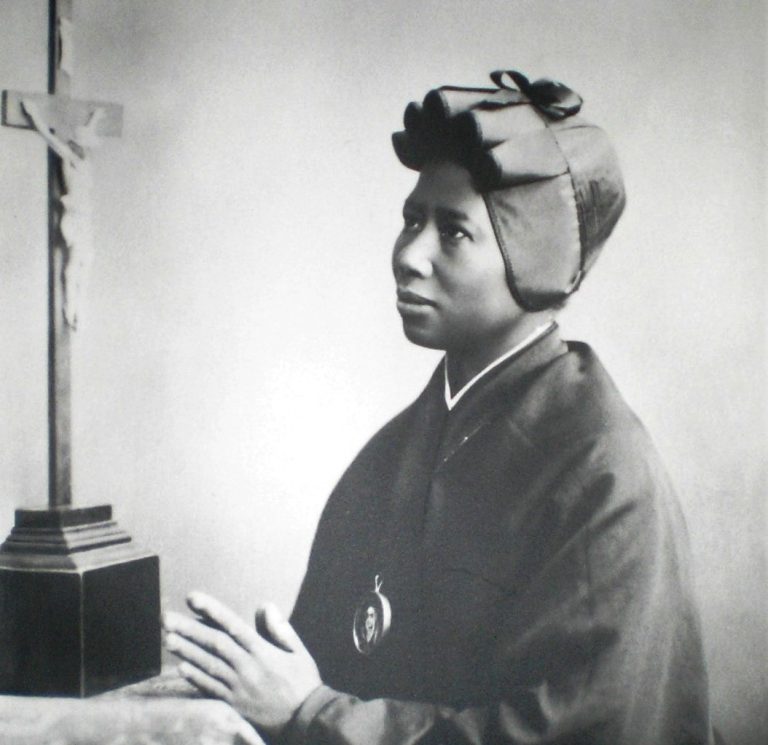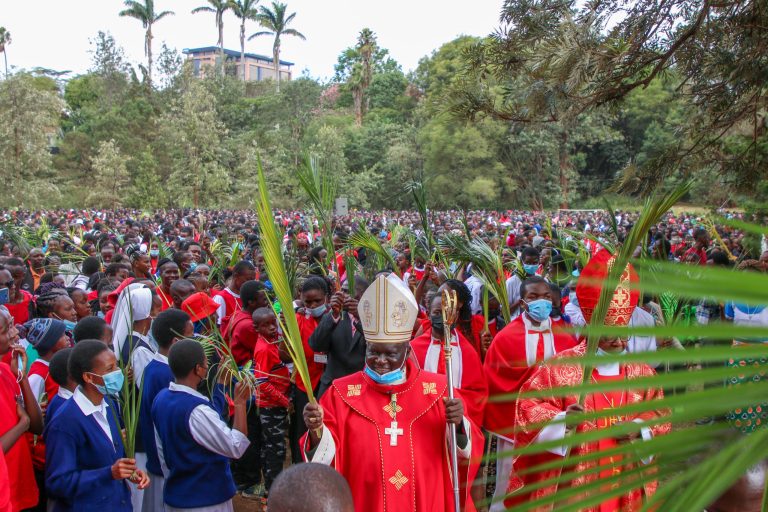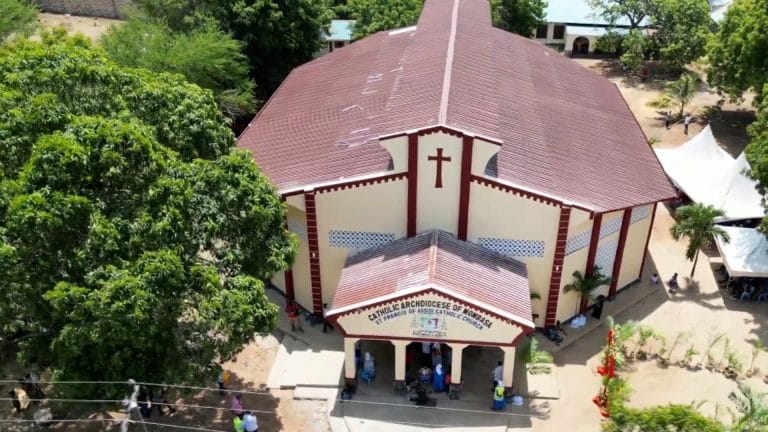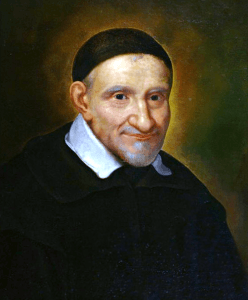
Welcome to Episode 17 of Saint of the Week. Today we honor Saint Vincent de Paul, a French priest whose name has become synonymous with charity and compassion. Through his tireless work for the poor, his organizational genius, and his profound spirituality, Vincent transformed how the Church approached service to those in need.
Early Life and Priesthood
Saint Vincent de Paul was born on April 24, 1581, in Pouy, France, into a modest farming family. His intelligence and piety earned him a chance at education, and by the age of 19, he was ordained a priest. Early in his ministry, Vincent hoped to advance socially and secure comfortable ecclesiastical positions.
However, his spiritual awakening came gradually, particularly through encounters with the sick and poor. One pivotal moment occurred when he heard a dying man confess sins that had long troubled him, inspiring Vincent to dedicate himself more deeply to the service of souls.
What began as spiritual ministry soon grew into direct service. After being deeply moved by the physical and spiritual poverty in the French countryside, Vincent began organizing efforts to feed, clothe, and care for the poor. His belief was simple yet radical: to serve the poor is to serve Christ Himself.
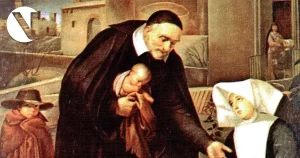
In 1617, he established “Confraternities of Charity”, lay groups—mostly women—dedicated to helping the sick and poor. These groups laid the groundwork for a broader movement of organized Christian charity.
Founding of the Vincentians and Daughters of Charity
In 1625, Vincent founded the Congregation of the Mission, also known as the Vincentians. This community of priests focused on evangelizing the rural poor and training clergy. Their mission extended to giving retreats, hearing confessions, and spiritual guidance to all social classes.
In 1633, together with Saint Louise de Marillac, Vincent co-founded the Daughters of Charity, a revolutionary community of women who took simple vows but lived and worked among the poor, instead of cloistered in convents. This model was groundbreaking and allowed for direct, hands-on service in hospitals, orphanages, and homes.
Vincent’s work went far beyond charity handouts. He advocated for long-term, structured aid, including hospitals, shelters, education for poor children, and care for galley slaves. He worked closely with nobles and royalty, encouraging them to take responsibility for society’s most vulnerable.
He also played a key role in the reform of the French clergy, helping to found seminaries and promoting high standards of education and virtue for priests.
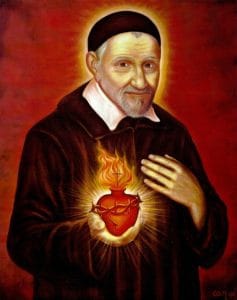
Death and Canonization
Saint Vincent de Paul died on September 27, 1660, at the age of 79. At the time of his death, his charitable networks had spread throughout France and inspired similar works across Europe.
He was canonized in 1737 by Pope Clement XII, and in 1883, Pope Leo XIII named him Patron of All Charitable Works. His feast day is celebrated on September 27.
Today, Vincent’s legacy lives on through numerous institutions and organizations, most notably the Society of Saint Vincent de Paul, founded in 1833 by Blessed Frédéric Ozanam. Active in over 150 countries, it provides food, shelter, medical care, and support to millions in need.

What We Can Learn
Saint Vincent de Paul challenges us to see Christ in the face of the poor. He reminds us that charity is not just about generosity, but about dignity, justice, and love. His life calls us to organize mercy, advocate for the vulnerable, and serve with humility and joy.
Join us next week for another inspiring edition of Saint of the Week, as we continue to journey with saints who changed the world through faith and compassion.

